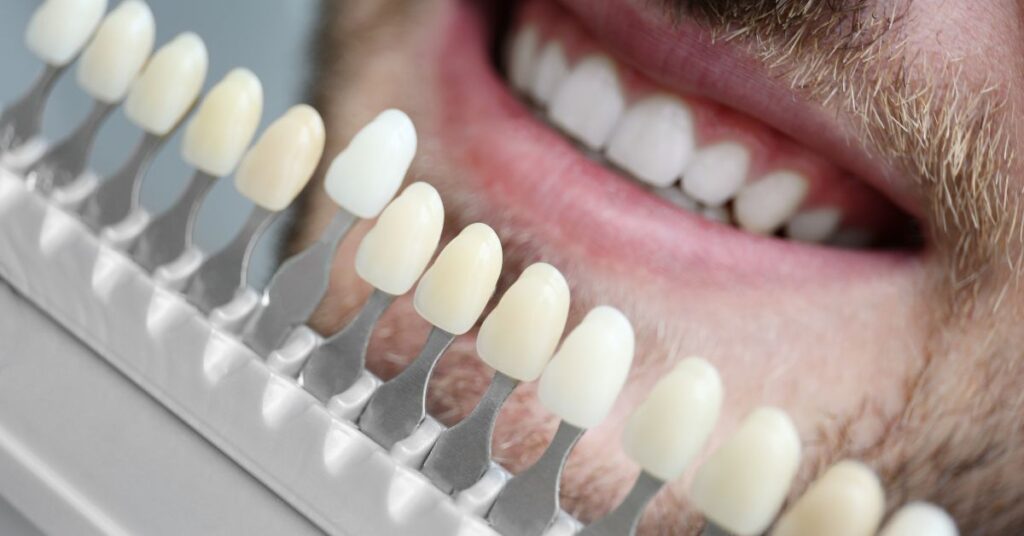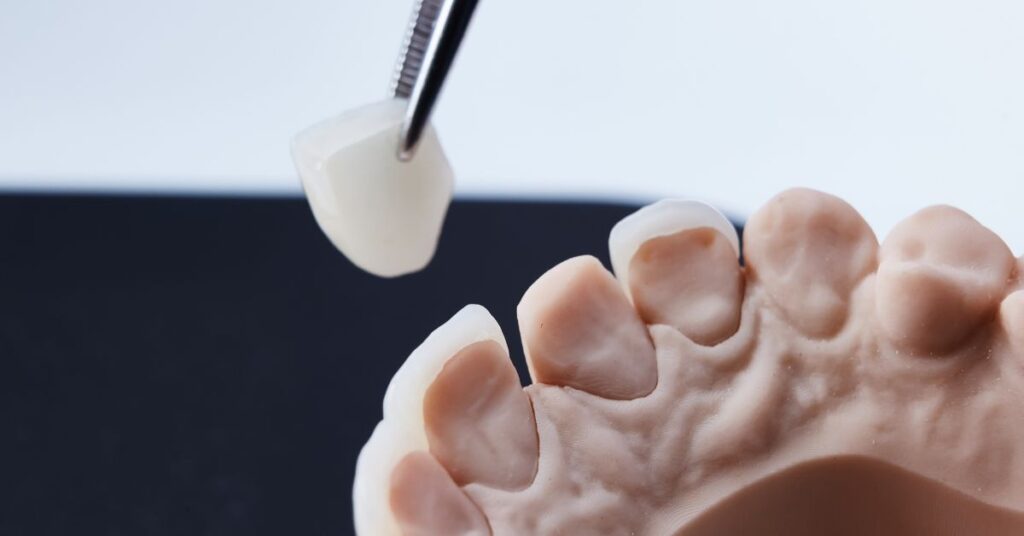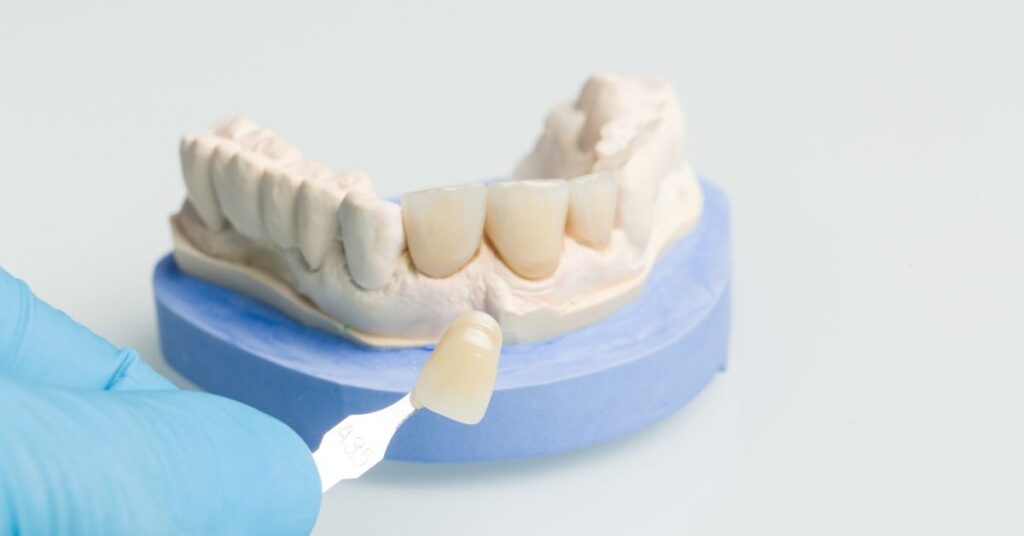
Introduction
Dental veneers are thin, custom-made shells bonded to the front of teeth to improve their appearance. They can be used to correct a variety of dental problems, including chipped or cracked teeth, discolored teeth, gapped teeth, crooked teeth, and undersized or misshapen teeth.
The benefits of dental veneers are numerous, making them a popular cosmetic dentistry procedure. They can dramatically improve the look of a smile without requiring a lot of tooth preparation. Additionally, dental veneers offer durability, stain resistance, and a natural appearance, enhancing your smile’s overall aesthetics.
Benefits of Dental Veneers
Dental veneers offer a number of benefits, including:
- They can improve the appearance of your smile dramatically.
- They are durable and can last for many years.
- They are relatively resistant to staining.
- They require minimal tooth preparation, so less of your natural tooth is removed.
- They can be used to correct a variety of dental problems.
Are Dental Veneers Right for You?
Dental veneers may be a good option for you if you are looking to improve the appearance of your smile and you have the following characteristics:
- Healthy teeth and gums
- No teeth grinding or clenching
- No history of gum disease
- Realistic expectations for what dental veneers can achieve
If you are considering dental veneers, it is important to talk to your dentist to see if they are right for you.
Types of Dental Veneers

There are two main types of dental veneers: porcelain veneers and composite resin veneers.
Porcelain veneers are the most common type of dental veneers. They are made from thin shells of porcelain that are bonded to the front of teeth. Porcelain veneers are very durable and can last for many years. They are also resistant to staining, making them a good choice for people who want a bright and white smile.
Composite resin veneers are made from a tooth-coloured material that is applied directly to the teeth. Composite resin veneers are less durable than porcelain veneers, but they are also less expensive. They are a good option for people who are looking for a more affordable option or who need veneers quickly.
Here is a table comparing the two types of dental veneers:
| Feature | Porcelain veneers | Composite resin veneers |
|---|---|---|
| Material | Porcelain | Composite resin |
| Durability | Very durable | Less durable |
| Stain resistance | High | Medium |
| Cost | More expensive | Less expensive |
| Procedure | Two appointments | One appointment |
Which type of dental veneer is right for you?
The best type of dental veneer for you will depend on your individual needs and budget. If you are looking for a durable and stain-resistant veneer, then porcelain veneers are a good option. If you are looking for a more affordable option or need veneers quickly, then composite resin veneers are a good option.
Talk to your dentist about which type of dental veneer is right for you. They can help you weigh the benefits and risks of each type of veneer and choose the best option for your individual needs.
The dental veneer procedure

The dental veneer procedure is typically completed in two appointments.
At the first appointment:
- Your dentist will prepare your teeth by removing a small amount of enamel from the front of the teeth. This creates space for the veneers to be placed.
- Your dentist will then take impressions of your teeth. These impressions are used to create your custom veneers.
- Your dentist may place temporary veneers on your teeth while you wait for your permanent veneers to be made.
At the second appointment:
- Your dentist will check the fit of your permanent veneers and make any necessary adjustments.
- Your dentist will then bond the veneers to your teeth.
The dental veneer procedure is typically painless, but you may experience some mild discomfort during the preparation process. Once the veneers are placed, you should be able to eat and drink normally.
Aftercare:
It is important to take care of your dental veneers to help them last for many years. Here are some tips:
- Brush and floss your teeth twice a day.
- Use a fluoride toothpaste and mouthwash.
- Avoid eating hard foods, such as nuts and candy.
- See your dentist for regular checkups and cleanings.
Caring for dental veneers

After your dental veneer procedure, it is important to take care of your veneers to help them last for many years. Here are some tips:
- Brush and floss your teeth twice a day. Use a soft-bristled toothbrush and fluoride toothpaste. Be sure to brush the front, back, and top of your teeth, as well as the gum line. Flossing will help to remove plaque and food particles from between your teeth and under your veneers.
- Use a fluoride toothpaste and mouthwash. Fluoride helps to strengthen your teeth and prevent decay. Mouthwash can help to freshen your breath and kill bacteria in your mouth.
- Avoid eating hard foods. Hard foods, such as nuts, candy, and ice, can damage your veneers.
- See your dentist for regular checkups and cleanings. Your dentist will check your veneers for any signs of damage or wear. They will also clean your teeth and veneers to remove plaque and bacteria.
Conclusion
Dental veneers are a popular cosmetic dental procedure that can improve the appearance of your smile. They are thin shells of porcelain or composite resin that are bonded to the front of teeth to correct a variety of dental problems, including chipped or cracked teeth, discolored teeth, gapped teeth, crooked teeth, and undersized or misshapen teeth.
Dental veneers offer several benefits, including durability, stain resistance, and minimal tooth preparation. However, they are also expensive and require two appointments to place.
If you are considering dental veneers, it is important to weigh the benefits and risks carefully and talk to your dentist to see if they are right for you.
If you are looking for a way to improve the appearance of your smile, the benefits of dental veneers make them a compelling option. However, it is important to weigh these benefits and risks carefully and talk to your dentist to see if they are right for you. For personalized advice and to explore the benefits of dental veneers further, visit Sri Sanjeevini Dental. Our expert team is here to help you achieve the perfect smile.


